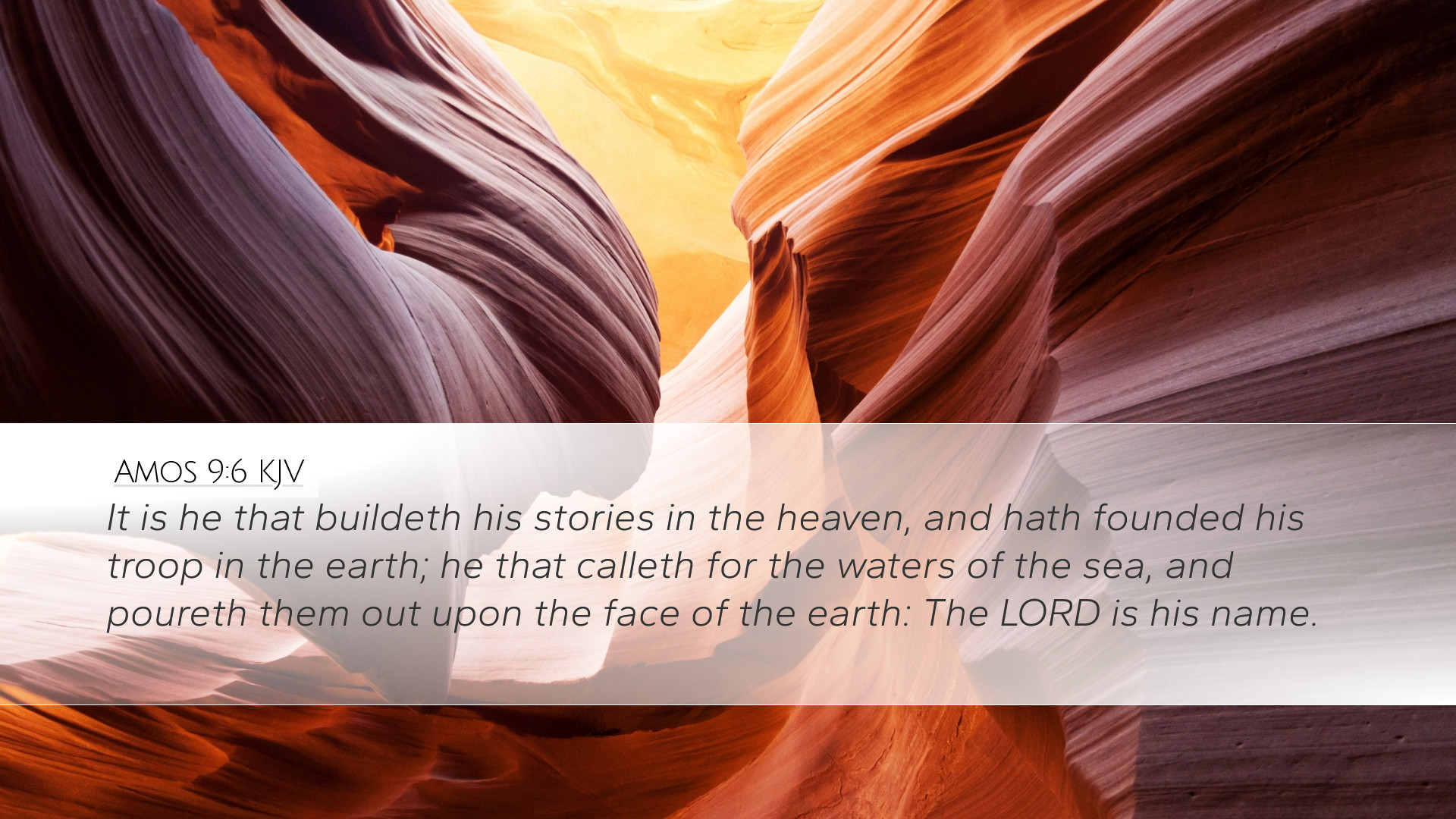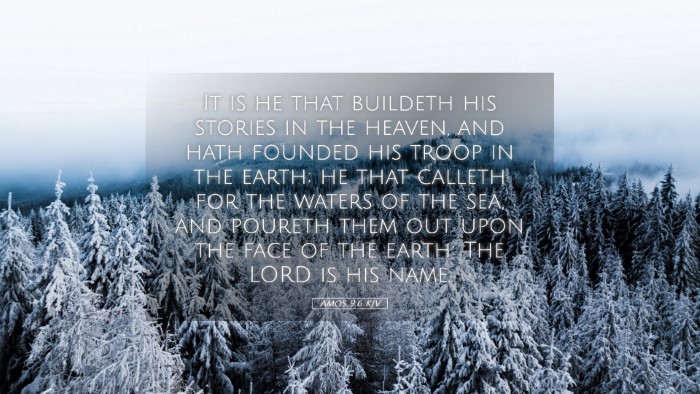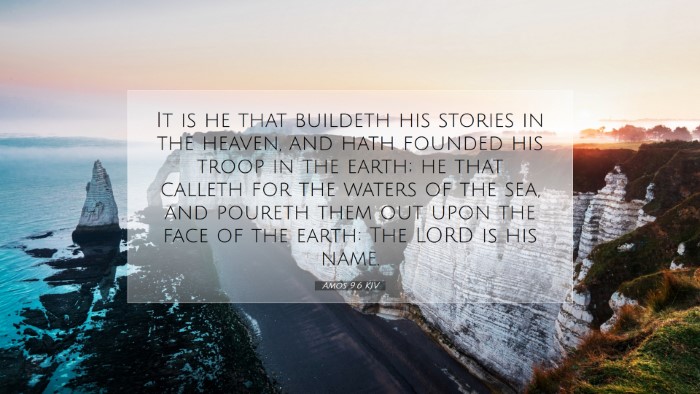Old Testament
Genesis Exodus Leviticus Numbers Deuteronomy Joshua Judges Ruth 1 Samuel 2 Samuel 1 Kings 2 Kings 1 Chronicles 2 Chronicles Ezra Nehemiah Esther Job Psalms Proverbs Ecclesiastes Song of Solomon Isaiah Jeremiah Lamentations Ezekiel Daniel Hosea Joel Amos Obadiah Jonah Micah Nahum Habakkuk Zephaniah Haggai Zechariah MalachiAmos 9:6
Amos 9:6 KJV
It is he that buildeth his stories in the heaven, and hath founded his troop in the earth; he that calleth for the waters of the sea, and poureth them out upon the face of the earth: The LORD is his name.
Amos 9:6 Bible Commentary
Amos 9:6 - Commentary Insights
Verse Text: "It is he who builds his ascensions in the heavens and has founded his vault over the earth; he calls for the waters of the sea and pours them out on the face of the earth—The LORD is his name." (Amos 9:6, ESV)
1. Divine Sovereignty and Power
Amos 9:6 presents a profound declaration of God's sovereignty over both the heavens and the earth. The commentary of Matthew Henry emphasizes that God is the ultimate architect of creation. He builds not only the heavens but establishes the very foundations of the earth. This duality of building illustrates God's omnipotent rule over all realms of existence.
Moreover, Henry highlights that the phrase "he calls for the waters of the sea" serves as a reminder of God's control over nature. God’s power is such that He can command the sea and its waters, pouring them over the earth as He desires. This illustrates God’s authority over the natural world, including the forces of chaos represented by the sea.
2. Theological Implications of Creation
Albert Barnes notes that this verse affirms the creation narrative as found in Genesis. By stating that God has "built his ascensions," Amos draws attention to the magnificence of God’s creation. The heavens are not merely a backdrop but are an expression of God’s glory and majesty.
Barnes insists that this understanding of God as Creator encourages believers to reflect on the incomprehensible nature of God. It leads to an acknowledgment of human limitations and the need for humility before such a sovereign Lord.
3. God's Judgment and Mercy
In the broader context of the Book of Amos, Adam Clarke points out the significance of God's judgment. While Amos declares God’s omnipotence, the surrounding chapters emphasize the judgment that is impending upon Israel. Clarke reflects on the tension between God’s justice and mercy, particularly how God desires repentance from His people.
This juxtaposition serves to remind us that God's sovereignty is met with human responsibility. Clarke encourages the reader to understand that even amidst impending judgment, there exists the possibility of mercy through repentance and faith.
4. The Universal Scope of God's Authority
The statement, "he calls for the waters of the sea," indicates God's authority is not localized but universal. Matthew Henry elaborates that God’s command over the seas also symbolizes His ability to control the chaos of nations. This understanding brings a sense of comfort and assurance to believers facing turbulent times.
Henry enriches the commentary by asserting that the God who controls nature is the same God who governs the events of human history. Thus, believers can place their trust in the Lord who sovereignly oversees all circumstances.
5. Contemporary Application
In light of the insights from these commentaries, one can draw meaningful applications for modern-day believers. The verse challenges Christians to consider the magnitude of God's authority. How often do we live as though we are in control when, in truth, the Lord governs all?
As Albert Barnes urges, there is a call for believers today to recognize their place within God’s grand narrative. The recognition of God's control should lead to a posture of worship and dependence, especially in times of uncertainty.
Moreover, this passage stands as a prophetic reminder urging the Church to call upon God, acknowledging His power and seeking His mercy amidst a world that often veers into chaos.
6. Conclusion
Amos 9:6 encapsulates the majesty of God’s creation and His absolute authority over the universe. The insights from historical commentaries invite pastors, theologians, and scholars to reflect on the divine attributes of sovereignty, mercy, and justice. In a world rife with uncertainty, the assurance of God’s omnipotence should embolden and unify believers in their mission to testify of God’s reign and righteousness.


